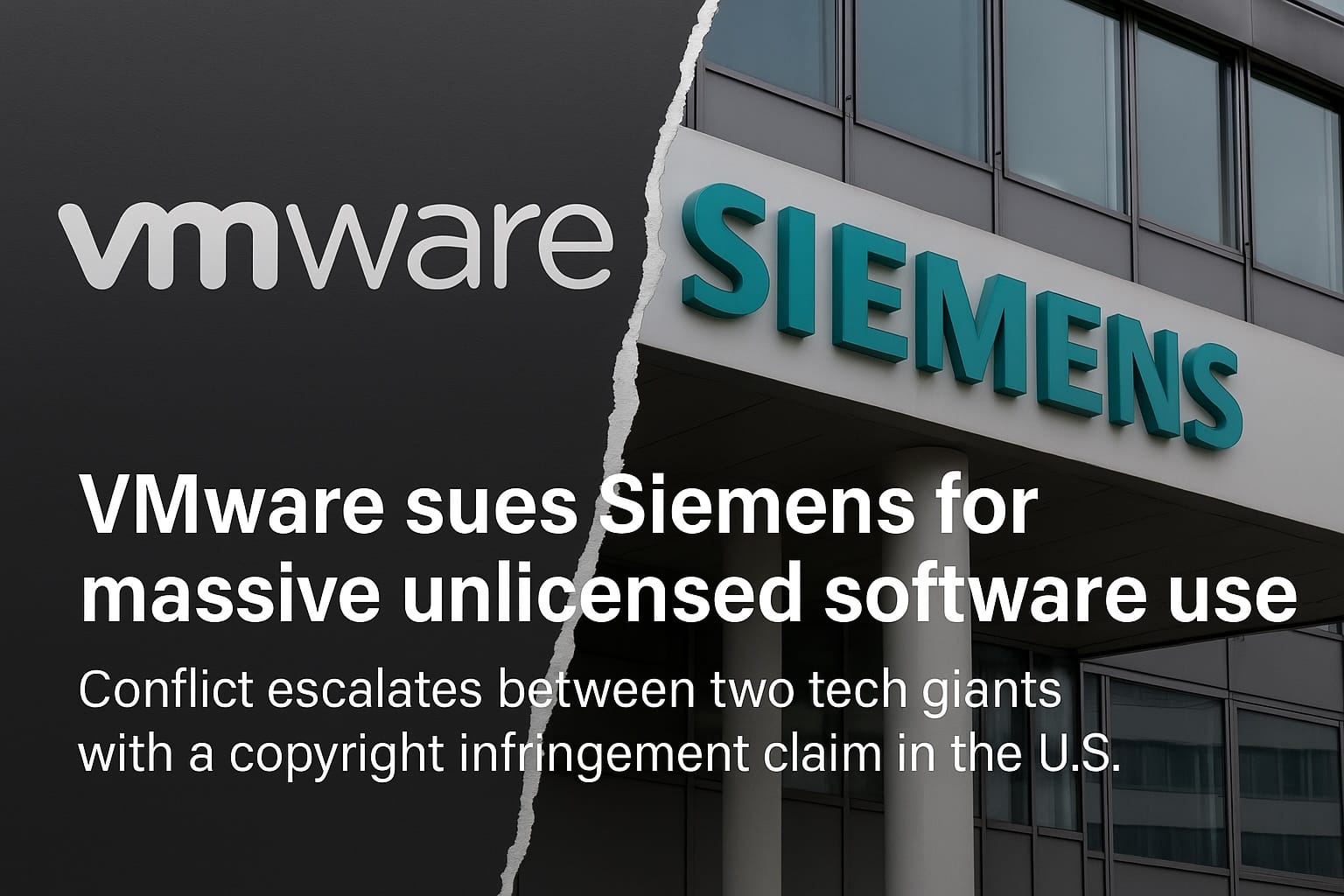The conflict escalates between two tech giants with a copyright infringement lawsuit in the U.S.
The virtualization and cloud computing company VMware, now part of Broadcom, has filed a formal lawsuit against Siemens AG and several of its subsidiaries in the United States, accusing them of using thousands of copies of VMware products without the appropriate licenses.
The complaint, filed in the Delaware District Court, details that Siemens allegedly downloaded, copied, distributed, and used VMware software without the necessary licenses, thus violating the terms of the Master Software License Agreement (MSLA) currently in effect between both companies since 2012.
A list that sparked controversy
The spark for the conflict arose on September 9, 2024, when Siemens AG sent VMware a list (known as the “September 9 List”) detailing the products it intended to renew under a clause in the contract that allowed for a one-year support extension. However, upon reviewing the content, VMware discovered that the list included numerous products for which there was no record of licenses acquired by Siemens.
According to VMware, the discrepancy between the products listed by Siemens and the registered licenses was so significant that the only possible explanation was unauthorized use of its solutions. Nevertheless, Siemens defended the validity of the list and demanded support service, even under the threat of legal action.
In fear of an interruption in essential services for Siemens, VMware temporarily agreed—under protest—to continue providing support for 30 days while reserving the right to take legal actions, which have now been initiated.
A reversal attempt without clarifications
Weeks later, Siemens attempted to replace the initial list with a new one that was more aligned with VMware’s internal records. However, the suing company claims that Siemens never provided a coherent explanation of why it defended the first list so vehemently if it was not accurate.
Furthermore, Siemens reportedly refused to allow an audit or run verification scripts to check the actual number of installations, practices that, according to VMware, are common among its corporate clients.
Potential damages in the millions
The lawsuit is not limited to a contractual claim but also includes charges of copyright infringement on multiple registered products, such as VMware vSphere, vCenter Server, NSX, Virtual SAN, and vRealize Suite. In the United States alone, VMware estimates that there are over 23,000 deployments of its software at Siemens locations, many of which are supposedly without a valid license.
The cited subsidiaries include Siemens Corporation, Siemens Medical Solutions USA, Siemens Industry Software, Siemens Mobility, PETNET Solutions, and Siemens Healthcare Diagnostics. All of these entities allegedly received and used software provided by the German parent company without complying with the licensing terms.
VMware argues that the infringement has generated financial benefits for Siemens and that the use of its technology has directly contributed to the profitability of the various business lines of the industrial group.
A dispute with global implications
This case not only pits two industrial leaders against each other but also sets a precedent for how enterprise software licenses are managed—and monitored—in complex corporate environments. It also arrives at a critical moment for VMware, which recently modified its download and licensing policies, now requiring custom download tokens to strengthen software access control.
VMware seeks monetary compensation for damages, as well as a court order preventing Siemens from continuing unauthorized use of the software. The case also raises questions about how large tech conglomerates internally monitor license compliance across their multiple subsidiaries and regions.
The lawsuit has been accompanied by a request for a jury trial. Siemens, for its part, has not yet issued an official response before U.S. courts.
References: The Register and ARStechnica. Copy of the case document.

